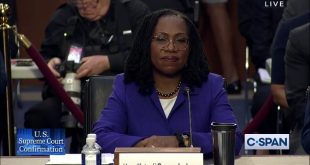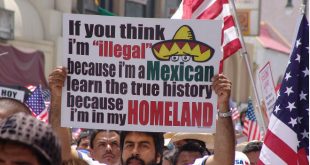(BCN editor’s note: This is the first of two Thomas Sowell columns for Thursday.)
Discussions of racial problems almost invariably bring out the cliche of “a legacy of slavery.” But anyone who is being serious, as distinguished from being political, would surely want to know if whatever he is talking about — whether fatherless children, crime or whatever — is in fact a legacy of slavery or of some of the many other things that have been done in the century and a half since slavery ended.
Another cliche that has come into vogue is that slavery is “America’s original sin.” The great Supreme Court justice Oliver Wendell Holmes said that a good catch phrase could stop thinking for fifty years. Catch phrases about slavery have stopped people from thinking, even longer than that.
Today the moral horror of slavery is so widely condemned that it is hard to realize that there were thousands of years when slavery was practiced around the world by people of virtually every race. Even the leading moral and religious thinkers in different societies accepted slavery as just a fact of life.
No one wanted to be a slave. But their rejection of slavery as a fate for themselves in no way meant that they were unwilling to enslave others. It was just not an issue — until the 18th century, and then it became an issue only in Western civilization.
Neither Africans, Asians, Polynesians nor the indigenous peoples of the Western Hemisphere saw anything wrong with slavery, even after small segments of British and American societies began to condemn slavery as morally wrong in the 18th century.
What was special about America was not that it had slavery, which existed all over the world, but that Americans were among the very few peoples who began to question the morality of holding human beings in bondage. That was not yet a majority view among Americans in the 18th century, but it was not even a serious minority view in non-Western societies at that time.
Then how did slavery end? We know how it ended in the United States — at a cost of one life lost in the Civil War for every six slaves freed. But that is not how it ended elsewhere.
What happened in the rest of the world was that all of Western civilization eventually turned against slavery in the 19th century.
This meant the end of slavery in European empires around the world, usually over the bitter opposition of non-Western peoples. But the West happened to be militarily dominant at the time.
Turning back to the “legacy of slavery” as an explanation of social problems in black American communities today, anyone who was serious about the truth — as distinguished from talking points — would want to check out the facts.
Were children raised with only one parent as common at any time during the first 100 years after slavery as in the first 30 years after the great expansion of the welfare state in the 1960s?
As of 1960, 22 percent of black children were raised with only one parent, usually the mother. Thirty years later, two-thirds of black children were being raised without a father present.
What about ghetto riots, crimes in general and murder in particular? What about low levels of labor force participation and high levels of welfare dependency? None of those things was as bad in the first 100 years after slavery as they became in the wake of the policies and notions of the 1960s.
To many on the left, the 1960s were the glory days of their movements, and for some the days of their youth as well. They have a heavy emotional investment and ego investment in the ideas, aspirations and policies of the 1960s.
It might never occur to many of them to check their beliefs against some hard facts about what actually happened after their ideas and policies were put into effect. It certainly would not be pleasant to admit, even to yourself, that after promising progress toward “social justice,” what you actually delivered was a retrogression toward barbarism.
The principal victims of these retrogressions are the decent, law-abiding members of black communities across the country who are prey to hoodlums and criminals.
Back in the 19th century Frederick Douglass saw the dangers from well-meaning whites. He said: “Everybody has asked the question, ‘What shall we do with the Negro?’ I have had but one answer from the beginning. Do nothing with us! Your doing with us has already played the mischief with us.” Amen.
COPYRIGHT 2015 CREATORS.COM
 Thomas Sowell is a senior fellow at the Hoover Institution, Stanford University.
Thomas Sowell is a senior fellow at the Hoover Institution, Stanford University.
 Black Community News News and Commentary for Christians
Black Community News News and Commentary for Christians




Mr. Douglas, you are exactly right, they traded one kind of slavery for another one. Native Americans are also trapped in the same slavery, dependence on the government.
Right on !!!
A prescient warning to all…the sin of slavery for our nation began with the fully politically marketed acceptance of the venal sin of indentured servitude…where the terms and obligations of an ever changing contract could never adequately be fulfilled by the debtor. Our government has fully put into place all the conditions of indenture serfdom of entire populations and as a condition thereof…party loyalty
Lenin would be quite pleased…..Orwell is not.
this is true. but the servant is comfortable in his place.
Thank you. but I bet you will be called an uncle tom. very sad.
Thomas Sowell is one of the smartest people today. I’m not sure there is a thing that I’ve ever disagreed with him about actually?
There is one tiny mistake in the article though. He mentions the Civil War ended slavery. Actually there were still slaves in the North during the entire war. There were still slaves even after the war, (including in the North) after the Emancipation Proclimation was written. It wasn’t until a while later when he 13th amendment was passed that slavery was ended.
Correct. The Native American tribes were not subject to the 13th amendment and continued to have slaves long after the rest of the country had discontinued the practice.
There are a few obvious errors in this text. Among them, the author cites that ghetto crimes, murder, labor participation, and welfare dependency were not as significant in the first 100 years. Clearly welfare (as we know it today) did not exist in the first 100 years post slavery. This an other ‘facts’ have no real basis.
You do not have to have ghettos(areas where masses of poor people congregate) to have ghetto crimes, if you had 1/10 the understanding of Mr Sowell, you would get it, but obviously you are more inclined to continue the blame race card game. You do not have to have govt welfare programs to have people dependent or others for survival. You have obviously smacked the tar baby and are now entangled in the goo.
No race cards or games for me, jw, I just opt for facts. So enlighten me and describe a parallel fact about welfare from 100 years ago (dependence on gov’t or others) that supports this thesis.
I would encourage all to read the words of such writers as Thomas Sowell, Star Parker, Ken Blackwell, Walter Williams, and others. Theirs are voices of reason and wisdom.
Great read. The man truly “gets it”.
Our government is so out of control so that it has become a dictatorship. Instead of our government being run by and for the people it has become our masters. Since obama got in office race relations have have fallen because obama promotes the hatred of whites and the police. obama’s agenda in letting all the illegals, muslim terrorists in through our wide open borders is when the mayhem gets out of control he can get away with declaring martiaL law so he can remain dictator for life…